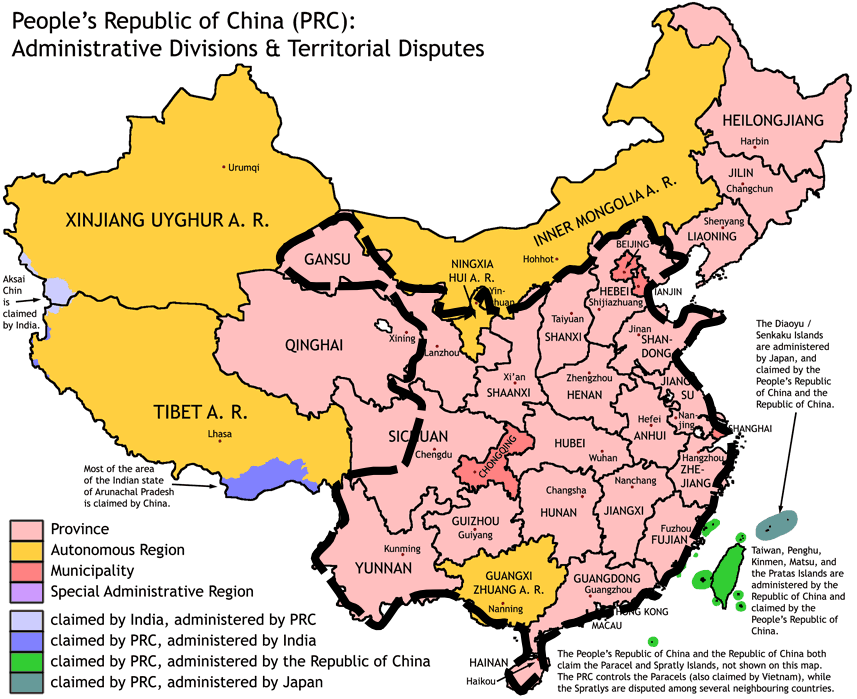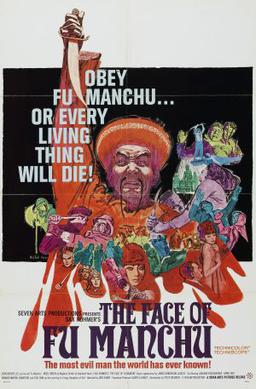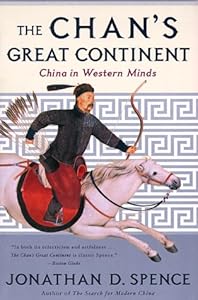5 minutes of googling at the time produced a Reddit thread that cast doubt on the authenticity of the story, pointing to the original source being a 2004 online story on the website of the Pakistani English-language newspaper, The Daily Times. I pointed this out on Twitter, and it was taken up by James Griffiths, who writes for That's Beijing, who decided to look further into the matter.
The results of his investigations are below.
No, a Chinese man did not 'successfully sue his wife for having ugly children'
To be fair, there have been a lot of stories in the press recently about some pretty nasty things happening in China (see here, here and here for examples) that have caught the attention of the world's media, particularly those of a tabloid bent. However, what I find interesting about these stories is whether true or not, the apparent willingness of people in the 'West' to always believe the worst about China.
As always, some context and perspective is required: China is home to 1/5 of the world's population (as a joke I once heard a stand-up tell goes: I heard the other day that one out of every five people in the world is Chinese, so I was wondering who it was in my family. Me, my mum, my dad, my brother John or my sister Lin Xiangmei?)
Therefore, all other things being equal (culture, income etc. etc.) one out of every five totally horrific things that you hear about in the world should, statistically, come from China.
However, all other things are, of course, not equal. Even though they face an increasing array of discomfitures (pollution, creeping xenophobia, never being able to get a taxi) foreigners in China still have a very comfortable life, as this report by HSBC suggests.
Lao Wai trying to get home from work in Beijing. Pollution haze in background.
|
 |
| 'China proper'? (dotted line). The most important thing to note is what a bloody funny shape Gansu is. |
This is not, of course, to offer an excuse for the nasty and crazy things that happen in China. It is simply to ask the question that if living in China is enough to drive many expats to leave a country they love(d) (see Charlie Custer and Mark Kitto for two interesting examples), what is it like for Chinese people who cannot up sticks and leave and have to cope with it or be dragged down by it?
 |
| To put it in regional/global perspective. |
But there is more to it than that. Derision and fear and condescension of China have a history in Europe (and by extension the Americas) going back 350 years. Although the fear of the "Yellow Peril" has been a motif in European thought from the era of the Mongol Hordes, European writers about and visitors to China from Marco Polo up until the Enlightenment held China up as a paragon of civilization and good governance. However, in the late 18th and early 19th centuries, under the influence of people like Herder and Montesquieu, that vision of China was reversed, when compared to a Europe growing in might and confidence in the wake of the Industrial Revolution.
In the late 19th century as the Qing Empire began to collapse in the face of internal pressures and foreign interventions, rather than being perceived as cultured and moral, the "Chinaman" became synonymous with fecklessness and chaos, evil and cruelty. Perhaps the personification of this image was that of Sax Rohmer's Fu-Manchu, brought to public attention in 1913 in The Mystery of Dr. Fu-Manchu.
 | ||
| The poster for the 1965 film, The Face of Fu Manchu. |
As Rohmer wrote in The Return of Fu Manchu:
[Dr. Petrie] lay at the mercy of this enemy of the white race, of this inhuman being who himself knew of no mercy, of this man whose very genius was inspired by the cool, calculated cruelty of his race, of that race which to this day disposes of hundreds, nay!, thousands of its unwanted girl-children by the simple measure of throwing them down a well specially dedicated to the purpose.
The image was also perpetuated in popular culture, in characters like Ming The Merciless in the Flash Gordon comics, and was perpetuated during the Cold War by the menace from 'Red China' and Mao Zedong.
All of this cumulates in a cultural tendency in the 'West' to believe pretty much anything we hear about China, especially if it is bad, crazy or cruel, or ideally all three.
So the next time you hear a story about China on Facebook or elsewhere, take a moment to check if it is really true; or at the very least if you don't have time to do that, approach it with skepticism, and ask yourself, "Why is this story being told, and why do I want to believe it?"
(If you are interested in how Europeans and Americans have perceived and portrayed China over the past 1,000 years, I highly recommend the peerless Jonathan Spence's book The Chan's Great Continent.)


Great post, I wish more people were aware of such nuances in perception.
ReplyDeleteThanks for your post. A lot of truth i like your post and i will come back. Good to see people with this awareness.+1
ReplyDeleteLoved your post. Thank you for your work and enlightenment :)
ReplyDeleteShared your blog.
Great Post. If anyone thinks that China is the greatest enemy, look at the history of the Opium Wars, and see how the West has acted in the past.
ReplyDeleteIf the news "Chinese man successfully sued his wife for having ugly children" is not true, then what is the truth about it?
ReplyDelete